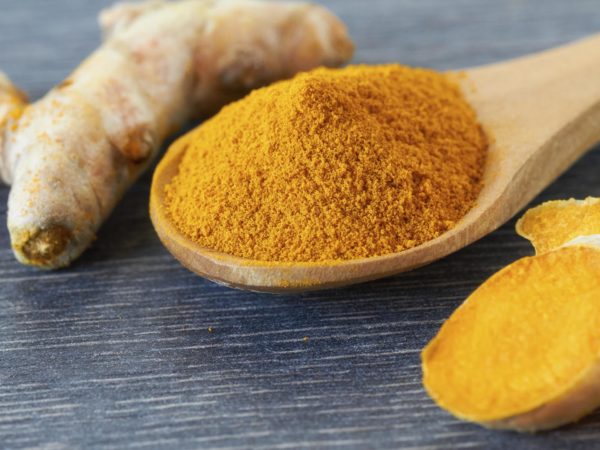Curcumin For Better Memory?
Can you bring me up to date on research into the use of curcumin to treat memory problems?
Andrew Weil, M.D. | May 11, 2018

Curcumin is a compound found in the spice turmeric. Both give the yellow color to curry powder and American mustard. The possibility that curcumin could prevent – or treat – memory problems, including Alzheimer’s disease, is suggested in part by population studies showing that elderly villagers in India have the world’s lowest rate of Alzheimer’s, perhaps because their traditional diet provides turmeric with almost every meal. Curcumin is a powerful antioxidant and also has anti-inflammatory properties that might protect against Alzheimer’s, which begins as an inflammatory process in the brain.
The latest findings on curcumin’s effects come from a small, double-blind, placebo-controlled UCLA study showing that curcumin supplements improved memory and mood in 40 people between the ages of 51 and 84 with mild, age-related memory loss. The participants were randomly assigned to receive either 90 milligrams of an easily absorbed form of curcumin twice daily for 18 months or a placebo. The form of curcumin used in this study is key; many forms are not well absorbed from the GI tract, so that little gets into the bloodstream and even less gets past the blood-brain barrier.
All the UCLA study participants received standardized cognitive assessments when the study began and every six months afterwards. In addition, 30 of them had PET scans at the investigation’s beginning and end to determine their levels of amyloid-beta and tau, the abnormal proteins that make up the plaques and tangles that progressively obstruct cerebral function in Alzheimer’s disease.
At the end of the study, the team found that memory improved by 28 percent in the participants who took curcumin. No such changes occurred in those who received the placebo. Those who took curcumin also showed mild improvements in mood, and their PET scans revealed significantly less amyloid and tau proteins in brain regions that control memory and emotional functions.
In news reports, the study’s first author, Gary Small, M.D., director of geriatric psychiatry at UCLA’s Longevity Center, said it isn’t known exactly how curcumin exerts theSE effects, but they may be due to its ability to reduce brain inflammation, A factor in both Alzheimer’s disease and major depression.
Of those who took curcumin 4 people as well as two who took placebos experienced some mild side effects, including abdominal pain and nausea.
The same team plans a larger follow-up study, including some subjects with mild depression in order to determine whether curcumin has any significant antidepressant effect. The new study also will enable the researchers to analyze whether curcumin’s effects vary according to the participants’ age, genetic risk for Alzheimer’s, or the extent of their cognitive problems.
Few Americans eat enough curry to equal the amount consumed in India. If you want to add more turmeric to your diet, combine it with black pepper. Piperine, a compound in black pepper, makes curcumin more bioavailable. If you take curcumin supplements, use only those that contain piperine (sometimes indicated on labels as “bioperine” or “black pepper extract.”) You can also drink turmeric tea, which has anti-inflammatory and anti-cancer benefits. You can learn more about turmeric tea and how to prepare it here.
Andrew Weil, M.D.
Source:
Gary W. Small et al, “Memory and Brain Amyloid and Tau Effects of a Bioavailable Form of Curcumin in Non-Demented Adults: A Double-Blind, Placebo-Controlled 18-Month Trial.” The American Journal of Geriatric Psychiatry, January 19, 2018; DOI: 10.1016/j.jagp.2017.10.010











